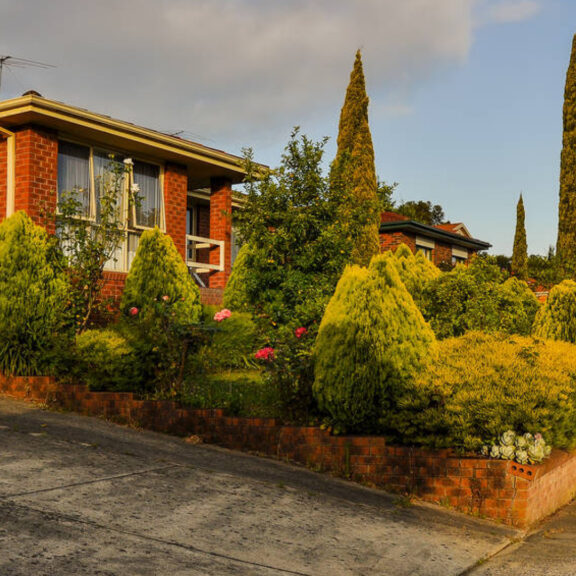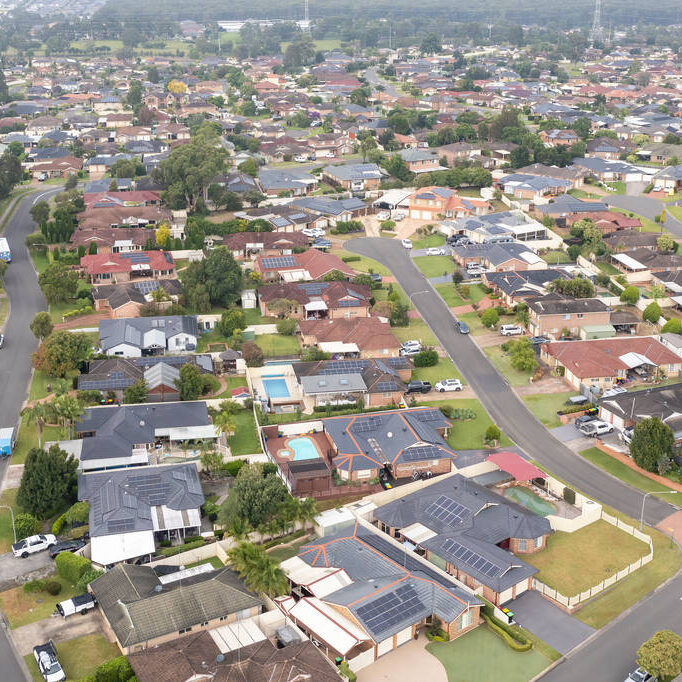You may be chasing more affordable prices, dreaming of a lifestyle change, or spotting investment potential in a different market altogether. No matter the reason, buying property in another state can be pretty tempting. But let’s be clear: buying interstate isn’t quite the same as finding a place down the road. You may have to […]
Learn About the Best Loans for Investment Properties
Maximise Your Investment Potential: Discover the Top Loans for Profitable Properties
Investing in property is a popular wealth-building strategy amongst Australians. But, of course, it requires a lot of capital. Most Australian investors utilise finance when investing in property. But, with so many options available, it can be challenging to determine which mortgage loan is the best fit for your investment property. Don’t fret, as we are here to guide you through some of the best loans for investment properties in Australia.
Conventional Mortgage Loans
First on the list are conventional mortgage loans. These loans are provided by financial institutions like banks and credit unions. Usually, lenders ask for a down payment of at least 20 percent of the property value. Some lenders may offer loans with a lower deposit, but this will depend on their individual lending criteria.
The advantage of a conventional mortgage loan is it typically offers lower interest rates than other types of loans or non-conventional lenders. Additionally, mortgages may be used to finance a wide variety of investment properties, including single-family homes, condos and multi-unit buildings.
Interest-Only Loans
Next up, we have interest-only loans. As the name suggests, with this loan, you only pay the interest on the loan for a specified period, usually five to ten years. This can keep your initial monthly payments low, allowing you to have more cash flow to invest in other properties or expenses.
The downside of interest-only loans is that you’ll start repaying the principal after the interest-only period ends. So you have to brace yourself for higher monthly payments and an overall higher loan cost after the interest-only period. Interest-only loans may be the right option for investors looking to maximise their cash flow or reduce their tax liability through negative gearing.
Line-of-Credit Loans
Moving on, we have line-of-credit loans. This type of loan is flexible and can be used to purchase an investment property or renovate an existing one. With a line of credit, you can access funds, as needed, up to a predetermined limit. This may be the right choice for investors who need to renovate or repair an investment property and are looking for flexibility in the finance amount and timing of drawdowns.
The downside of line-of-credit loans is they typically come with higher interest rates than other mortgage loans. Also, because they are revolving credit, you may be tempted to use the funds for non-investment purposes, which can lead to financial trouble. How do you know if it’s ideal for you? Often, a line of credit is recommended for investors who need flexibility and want to keep their options open.

SMSF Loans
SMSF loans, or Self-Managed Super Fund loans, are used by investors looking to purchase investment properties in Australia within their SMSF. These loans are specifically designed for individuals who want to invest their superannuation funds into property.
It’s vital to note that SMSF loans come with some risks and restrictions. For example, you can only use an SMSF loan to purchase a property intended solely for investment purposes and not for personal use. Additionally, there are strict rules on managing and investing your super. Failure to comply with these rules can result in severe penalties.
Overall, SMSF loans can be a viable option for investment properties, but they’re not suitable for everyone. It’s essential to weigh the pros and cons carefully and seek expert advice before investing your superannuation funds in a property.
Low-Doc Loans
Finally, we have low-doc loans, a practical option for self-employed investors who may not have traditional income documentation, such as tax returns or bank statements. With a low-doc loan, you may be able to provide an accountant’s letter or alternative documentation to demonstrate your ability to repay the loan.
But be mindful of low-doc investment loan rates and fees because they are usually higher than other types of loans. Additionally, because they are riskier for lenders, you may need to provide a higher down payment or have a higher credit score to qualify for a low-doc loan. Still, low-doc loans are suitable for self-employed investors without enough documents to show lenders their ability to repay.
Additional Tips
Still can’t decide which loan to get for your new investment venture? Here are some additional tips to help you choose the best loan for your investment property:
- Research different lenders and compare their interest rates, fees and loan terms to find the best deal.
- Consider the type of property you want to invest in and the loan options available for that property.
- Think about your long-term investment goals and select a loan that aligns with those goals.
- Be realistic about your financial situation and only take out a loan you can comfortably repay.
- Don’t be afraid to ask questions and negotiate with lenders to get the best possible terms for your loan.
Final Thoughts
Investing in property may be a profitable venture for many Australians, but it requires careful planning and financial management. Choosing the right loan for your investment property is an essential part of that process. By considering your options and working with a reputable lender, you can find the loan that best suits your needs and helps maximise your investment returns.
Remember, the key to success in property investment is to be patient, realistic and diligent in your approach. With the right loan and a solid investment strategy, you increase your chances of building a profitable portfolio of investment properties. Get in touch with Deltos Finance today to learn more.
Enquire Now
Find Your Perfect Finance Solution
Let's discuss your finance needs. We’re here to help.
More posts from Deltos Finance

Suburbs with the Highest Rental Yield in Tasmania
The term “rental yield” is music to any property investor’s ears. It’s the key metric that indicates the annual return on your investment, essentially the percentage of the property’s value that comes back to you in rental income. In a market like Tasmania, which has been gaining traction for its overall investment appeal, pinpointing the […]

Launceston: A ‘Second Wind’ Property Market You Should Invest in Now
When talk turns to Tasmania’s property scene, it’s easy for the spotlight to shine brightly on Hobart, with its bustling waterfront and historic charm. But just a little further north, nestled at the head of the picturesque Tamar Valley, lies Launceston—a city that quietly hits its stride and presents a compelling proposition for savvy property […]

How Often Does Property Double in Value?
Every homeowner has likely dreamed of their property doubling in value in the future, turning into a valuable nest egg or funding their next big adventure. But how long does it actually take for a property to double in value? And how often does it happen? While there’s no magic eight-ball to predict the property […]

Stamp Duty Exemption for First-Home Buyers in Tasmania: Has It Paid Off?
Purchasing a property has historically come with major financial difficulties, especially for first-home buyers in Tasmania or any other state for that matter. The stamp duty is one of those most notable monetary challenges for homebuyers. Essentially, it’s a tax levied on property purchases that often adds tens of thousands of dollars to upfront costs. […]

Difference Between Airbnb and Traditional Renting in Hobart
Hobart’s property market has become a hotspot for investors largely because of its strong tourism demand and stable rental market. But that doesn’t mean all property investments in this Tasmania capital are a sure win. One factor to consider is deciding between short-term rentals like Airbnb and traditional long-term renting. Each option has distinct advantages […]

Is Launceston a Good Place to Live?
The short answer is yes, especially if you want a more affordable lifestyle without giving up access to key services, natural beauty, and long-term opportunities. Also, with its blend of heritage charm, steady economic growth, and a property market still within reach for many Australians, Launceston, Tasmania, is gaining momentum as a popular area for […]

Hobart Property Management Fees: A Complete Guide
You’ve already secured an investment loan and finalised your rental property purchase in Hobart. Now, it’s time to take action by listing the property for rent and managing it effectively to start generating rental income. But how much should you expect to spend on property management in Hobart, Tasmania? As Tasmania’s capital continues to attract […]

How Rising Property Prices Affect Your Home Loan and Buying Potential
Here’s the good news: the Australian real estate market has been experiencing significant growth in recent years, with house prices in major cities reaching record highs. It can be a huge win for homeowners and investors, especially those planning to sell their properties soon. However, this can be an issue for potential property buyers, including […]

Build Your Wealth with a Simple Guide to Using Your Home Equity
Building wealth requires adopting the right mindset and being strategic when using available financial instruments. Essentially, it’s about making your money work in your favour. But what if you don’t have enough cash to start creating wealth? There’s an underutilised strategy that we want to share with you, and that is leveraging your home’s equity—the […]


